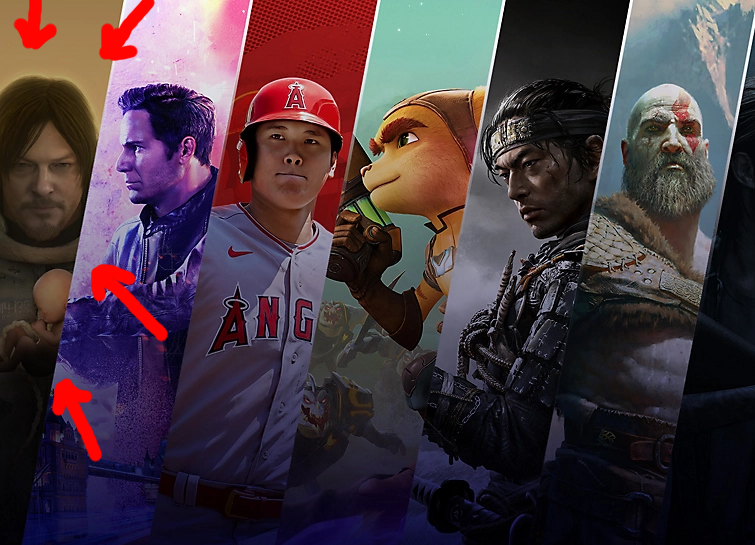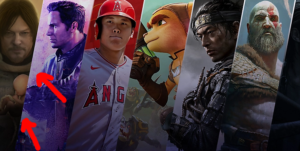
PlayStation Studios
An update to the official PlayStation Studios website, dedicated to Sony’s list of first-party software and the worldwide studios that manufacture it, began bidding on a new game maker this week. But it’s not Bungie, the studio that Sony plans to acquire in a deal reportedly worth $ 3.6 billion.
Instead, Sony’s formal first-party banner now includes Death Stranding, The 2019 adventure developed by Kojima Productions in collaboration with Sony Interactive Entertainment. And that’s the highest indication that Sony and Metal Gear Solid creator Hideo Kojima is moving forward with a firmer partnership than ever before.
The banner in question received an update at some point this week, as seen on Wednesday by a commentator on the gaming forum ResetEra, to reflect recent first-party Sony releases in the past year. That updated image remains live on the PlayStation Studios main page from the time of press release. Much of the banner remains identical to its 2021 version, but its MLB The Show the icon has been updated to its 2022 edition cover star, Shohei Ohtani, while images for Horizon and Great Tourism have received updates to reflect their 2022 successors.
The 2020 re-release of Demons’ souls appears now, which is a good reminder that its developer Bluepoint was acquired by Sony in September. It means Death Stranding is only games in this splash image not made by a fully acquired PlayStation Studios company.
Hence the sudden emergence of Death Stranding in a far left corner, we have wondered if Sony has once again slipped some megatons of news into an accidental image upload, as it did with its possible Bluepoint acquisition in July 2021. At the time, Sony’s Twitter announcement that it would acquire Housemarque, the creators of Returnincluded a Bluepoint image that was immediately deleted.
Hoping for one PT spiritual successor
Like the other aforementioned acquisitions, Kojima Productions would make sense as a formal first-party Sony studio, as its output has so far been closely tied to PlayStation. Kojima Productions started after Kojima’s public, messy divorce with his best-known employer, Konami, and Sony was part of the new studio’s advertising buzz. Death Stranding‘s unveiling was hosted by Sony in 2016 with an indication that it would be developed in collaboration with Sony’s game studios – and even counted Sony development legend Mark Cerny among its contributors.
At the time, Kojima insisted that the game could eventually be shown on other consoles. So far, it’s still a PlayStation console exclusive, though both its original version and director’s cut, like other newer Sony first-party games, eventually found their way to the PC. (These PC ports were released by 505 Games, not Sony.)
The always enigmatic Kojima has let fans grab the straws to guess what might come next. Kojima’s April 2020 proposal to make a “horror” game made fans hope that the game maker could revive its infamous delisted horror experiment PT. Could a Sony partnership lead to something as “revolutionary” as Kojima teased in that interview? And could such a hypothetical game benefit from Sony-exclusive technology like the PlayStation VR2?
Meanwhile, other journalists are not ready to deny rumors that Kojima has recently entered into an agreement with Microsoft to release a game on Xbox. Giant Bomb podcast host Jeff Grubb indicated this week on his subscriber-first podcast that an agreement between Kojima and Microsoft “was still in effect … from a few weeks ago.” Grubb also said that a formal acquisition from Sony could still happen with such an agreement on the line – much like how Bethesda ended its work with exclusive Playstation consoles Deathloop and Ghostwire Tokyo after being acquired by Microsoft in 2020.
Sony representatives did not immediately respond to Ars Technica’s questions about the change to the PlayStation Studios website.
